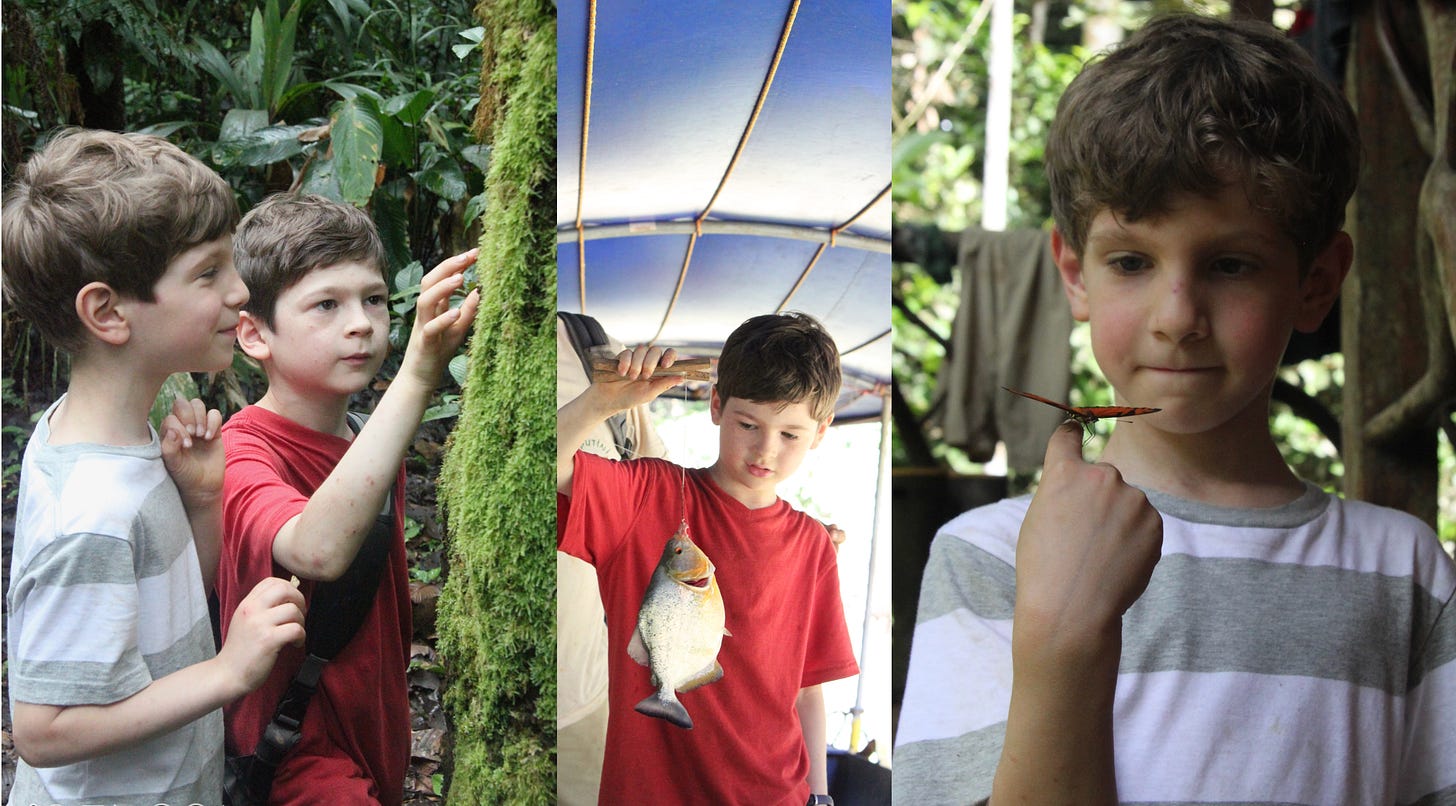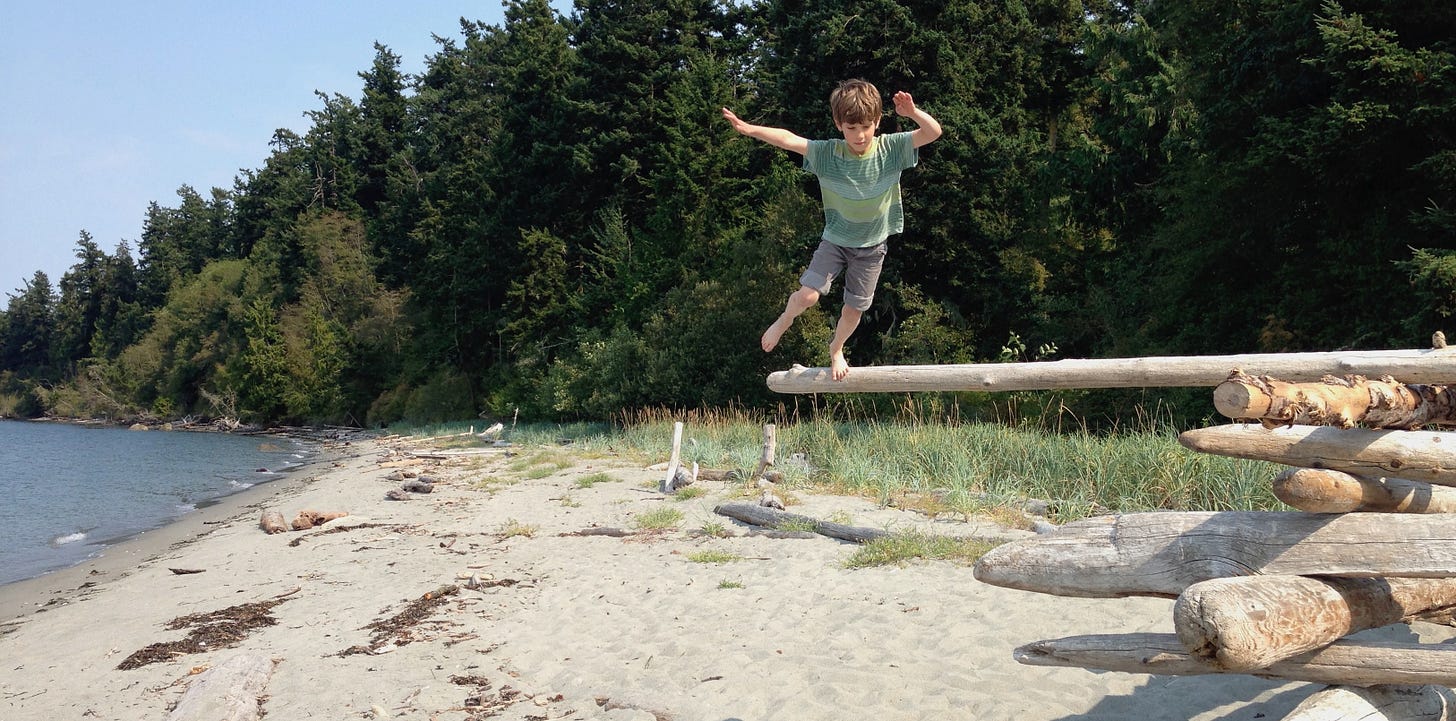Both of my children left home this week. They flew off to Europe to study abroad, on the same day, at the very same time. This despite the fact that I had the good sense not to have twins. I say this cheekily, knowing that I would have embraced twins if they had happened, but also having heard how difficult it can be to have every developmental stage doubled in intensity.
I have also heard, but only from people without children, how much better it would be to have twins. “Get it all out of the way faster,” they say.
Right.
Once, before I had children, I was interviewing for a faculty position at a liberal arts college, when I happened to meet the school age children of the chair of the hiring committee. He—the chair—was swapping duties with his wife, a hallway hand-off that included both me and their children. Despite having had little experience with children at that point in my life, I somehow charmed the little ones, enough that they remembered me when I showed up in their parents’ world later, after I had been hired. Their mother, a formidable scientist, told me then that having children was transformational, and that it only got better as time passed.
“The babies, you’ll fall deeply in love with them. But you can’t do anything with them,” she told me. “Soon enough, though, you can talk to them, and go places with them, and show them the world.”
Later I was witness to her wonderful children growing up and becoming adults, and yes, she had shown them the world. And they, too, came to show her the world as they were coming to understand it.
I was two weeks shy of my 35th birthday when I had my first baby. Not quite an “elderly primigravida” in the language of obstetrics, but very close. By then I had earned a PhD in Biology and done award-winning research in Madagascar and written a book and married the love of my life and gotten a tenure-track job.
I don’t regret having all of those experiences before becoming a mother. Nor do I regret having a professional life that I loved after becoming a mother. But of all the things in a life that a person could regret, motherhood has got to be at the bottom of the list.
When I was 34, Bret and I discussed whether it was time to start a family. We had been married for five years, living together for well over a decade. We wanted children ultimately—or really, we felt sure that we would have wanted to have had children if the opportunity passed us by—but neither of us felt it viscerally.
Predictable decline in fertility with age being what it is, I had long thought that, given that we said that we wanted children, doing so by the time I was 35 made sense. But there was a lot in our lives that was still up in the air, including considerable financial insecurity. So we decided to wait for at least two years, and then revisit the topic.
Two weeks later I was pregnant.
Sometimes the world delivers exactly what you need, even when you have very different ideas.
It is a particular feature of my personality that I love risk and I love to explore, and I did not want to be restricted from roaming wild on the Earth. Pregnancy was, as I rather predicted it would be, hard for me, as it is inherently physically restrictive. I wanted to bike and play sports, eat raw cheese and drink whiskey and travel. Instead I lumbered more with each passing day, my horizons narrowing. About seven months in, one biologist to another, I told Bret that this whole mammal thing was a truly stupid way to reproduce. I never regretted pregnancy, but I did resent it.
This is what women often hear about. How hard it all is. How dangerous and difficult and restrictive and boring and high stakes and unfair the whole thing is.
I didn’t like being pregnant, either time. It was, indeed, hard on me.
Motherhood was not.
Because my children, my two beautiful baby boys who are now young men launched on adventures that are just beginning…my children are my children. As soon as they each were born, I held them and I knew. There are no words for it. I am a person who comes up with words, but for this, there are no words.
Those who would have you avoid parenthood, though, they have words. Words to scare you with: dangerous and difficult and restrictive and boring and high stakes and unfair. I can come up with counterparts to those words—exhilarating and worth it and expansive and exciting and yes, high stakes, and the most extraordinary thing that you can do. But those words still do not capture the experience.
I didn’t proselytize for motherhood upon becoming a mother, as many do. It’s your life, I figured, do as you please. However. I did have occasion to say to people, if and when they asked, that there is nothing like it, and that you cannot understand until you are a parent, and that it is the best thing in the entire world.
Not that I didn’t sometimes want to go places that I could not go with young ones. I wanted to start taking them to the jungle when they were very young. Too young, I was compelled by Bret, for we would be taking too many risks taking very young children to the kinds of places I wanted to go.
Instead I started leading study abroad trips for undergraduates, getting some of my fix for wild tropical nature that way, knowing that my children were safe with their father, at home.
When they were old enough, we began taking them to the jungle together.
How old is old enough, you might wonder. That is a discussion for another time.
Here are Zachary and Toby tasting lemon ants. And here is Zachary’s first piranha. And Toby enjoying a butterfly. All are from the Amazon. They were old enough.
People without children are often the most confident in their opinions about children, and how to raise them.
A few days after the birth of my second child, I heard from someone who had no children, that having two children is easier than having only one.
I’ve heard about social workers, all of whom were childless young women, lecturing mothers on why enforcing rules and having expectations of children is bad for their morale. “It makes them feel bad.”
Even, from the same childless young social workers, of someone’s beloved son, “Sometimes you just have to accept that your child will be dependent on the state.”
A mother who wanted nothing more than to be away from the handouts, to give her child what his first family had not been able to, to do so both with love and with rules, was told to give up such goals. Best to let the state handle this. The state knows best.
Confidence is a kind of tell in this context. Confidence often reveals total ignorance.
I’ve heard people say that having children is bad for the planet, or will get in the way of their having the careers they want, or just doesn’t suit their lifestyle. They are certain that they do not want children.
And I’ve seen some of those people completely change their minds, their partners baffled and hurt, their trust breached. The thing is, it shouldn’t be surprising that people change their minds on this subject. Especially women.
As a society, we’ve become fanatical in our pursuit of never having a sad or unpleasant moment. Do make sure that everything is comfortable and easy and causes you no concern. What we forget in our quest for comfort and ease, with nothing else to strive for, is that comfort and ease quickly become dull, banal and generic. They are inherently uninspiring. The people who have successfully created a life for themselves that is only comfortable and easy—as opposed to one that pursues engaging comforts in between challenging work—become grim and grey. They are the blank-eyed drones, easily coerced and easily convinced, so long as their comfort and ease do not go away.
Having children will make you less comfortable. It will not be particularly easy. And it will rouse you and remind you that you are not all that there is. You are but a tiny speck in the universe, doing your best, and now, with this beautiful child, you are more than that. You have another speck to care completely about, someone with whom you will be bonded forever. And ultimately, when you have succeeded, that someone will become independent, and free.




Wow! I have to wonder, can any of those who proselytize against motherhood and bringing children into this world make their case with the kind of elegance and genuineness that you show here? (And many other times before)
That's the trouble with ideology. It has no heart and not much mind. Think of what they are missing, and they don't even know it!
Although in truth words are insufficient, these that you have shared dear Heather are a wonderful start. My older son's wife is a veterinary surgeon and the head of her practice, and she has made the decision to forego motherhood. I did not know until I reached this place that the prospect of grandmotherhood was such a wonderful future benefit and bonus. My heart is broken contemplating the child of my child whom I will never know. That, too, is part of the process. Thank you for this.